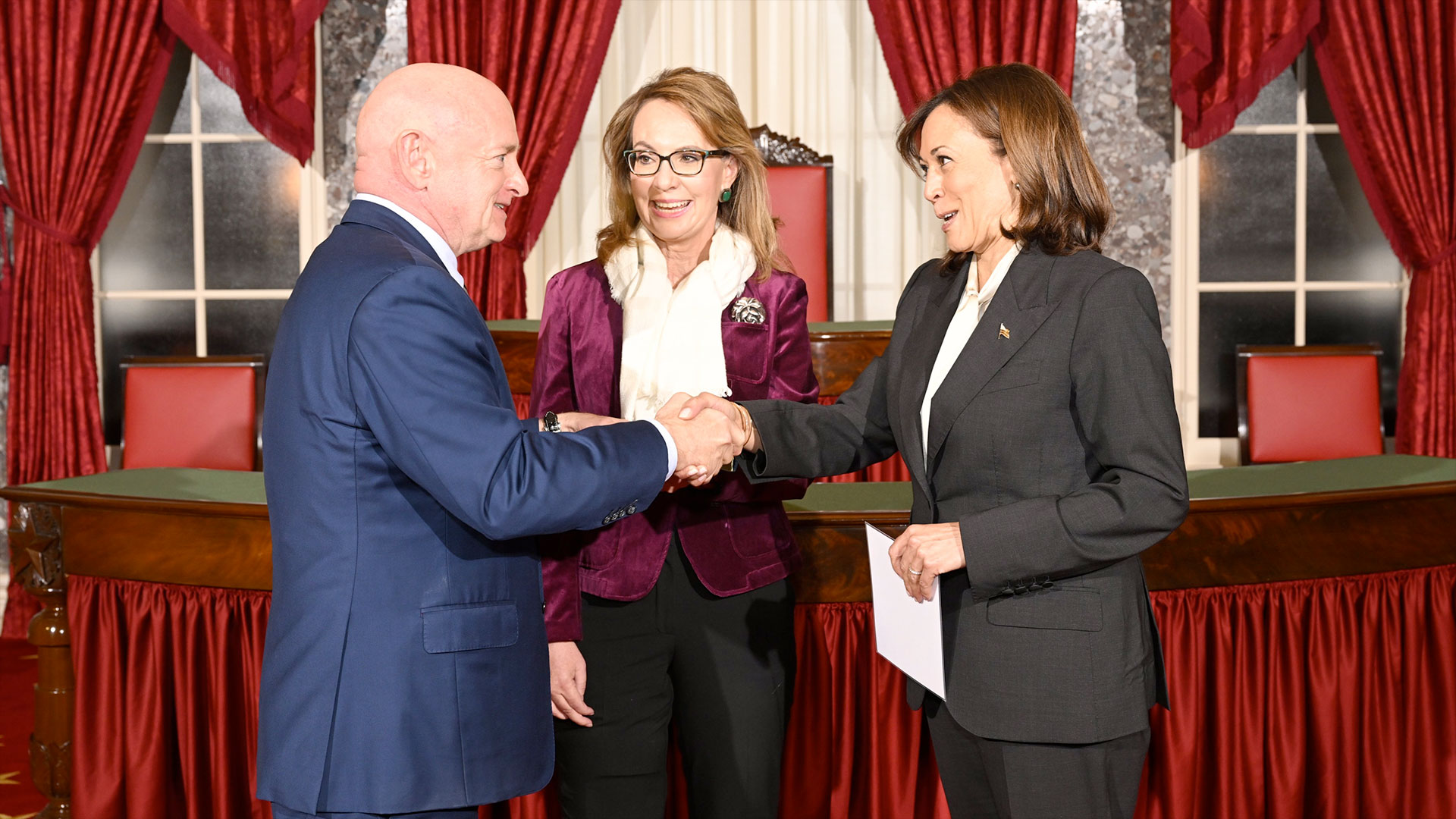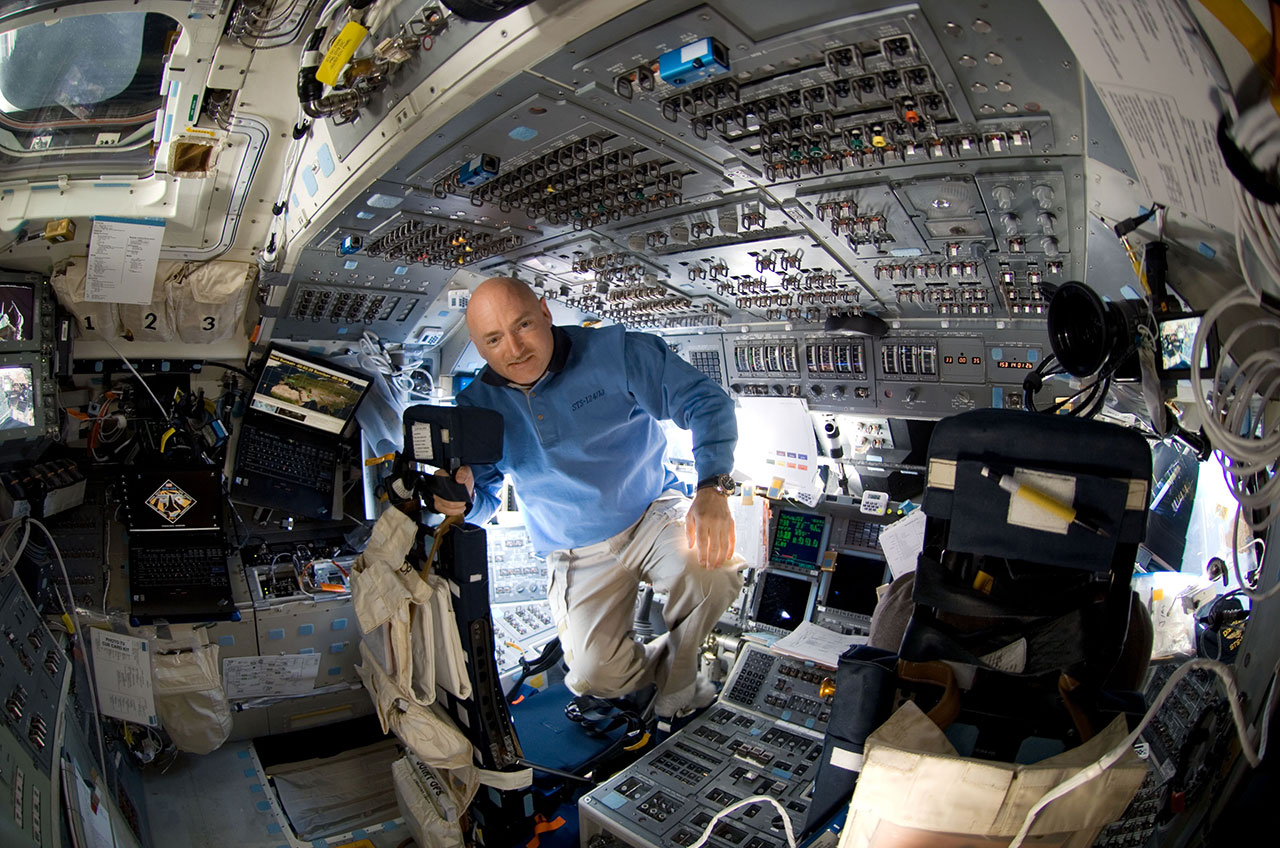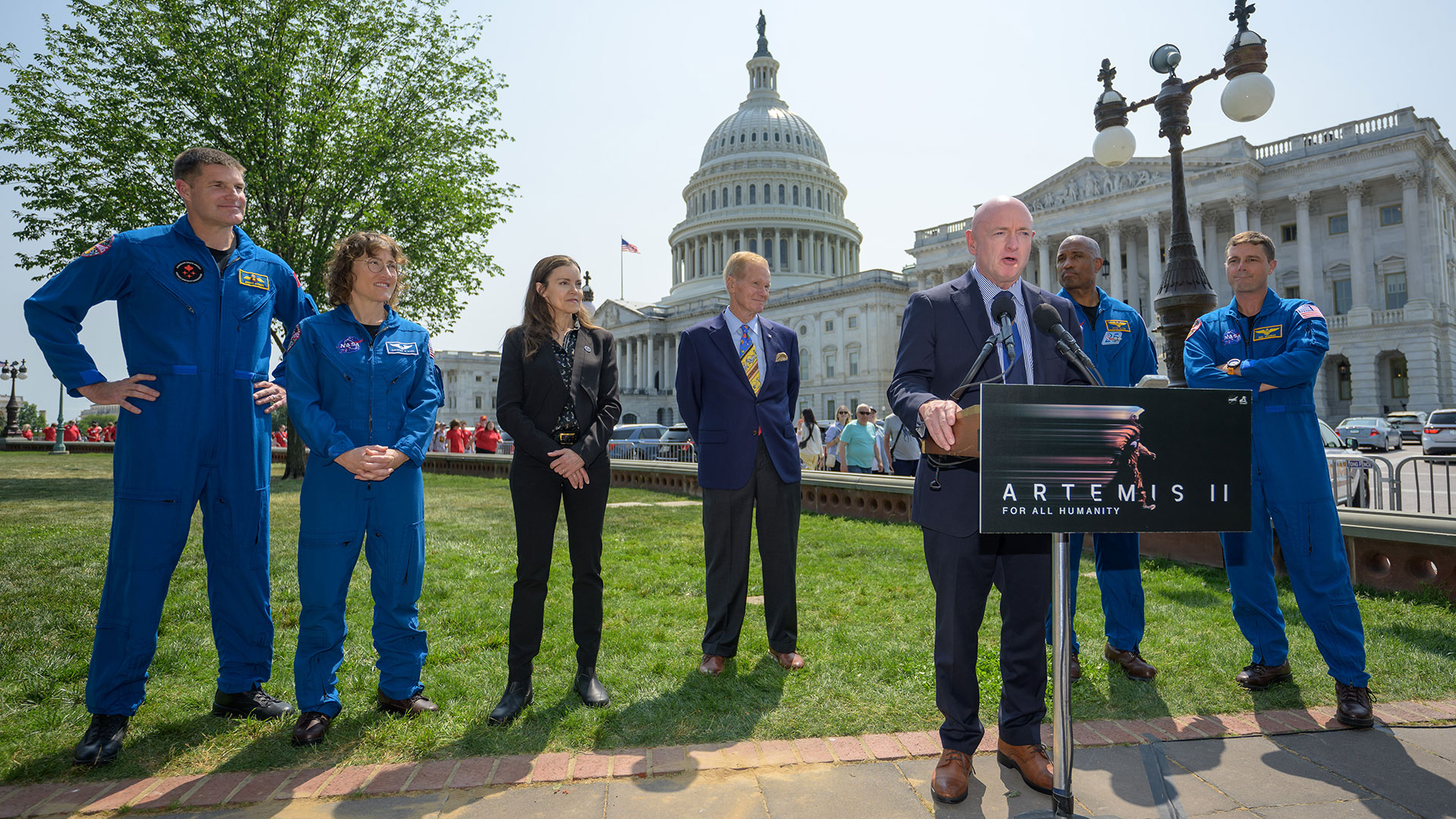
Arizona Senator Mark Kelly, a former NASA astronaut, is on Vice President Kamala Harris' shortlist to be her running mate as she pursues becoming the next president of the United States. If chosen, Kelly would become the first person who has flown into space to be on a ticket for the White House.
Harris is considering Mark Kelly to be her vice president alongside other candidates, including the governors of Illinois, Michigan, Minnesota, North Carolina and Pennsylvania. Kelly has represented Arizona in the U.S. Senate since 2020, when he won a special election to complete the six-year term of John McCain, who died two years earlier. Kelly was reelected to a full term in 2022.
A former captain in the U.S. Navy, naval aviator and test pilot, Kelly became an astronaut with NASA's 1996 class of candidates, the same group that included his twin brother, Scott.

Kelly logged more than 54 days on four space shuttle missions. He served as pilot on the STS-108 crew, launching on the shuttle Endeavour to deliver supplies to the International Space Station in 2001 and then five years later on Discovery on STS-121, NASA's second return to flight after the loss of the orbiter Columbia and its seven-member crew in 2003.
Related: Biography of former NASA astronaut Mark Kelly
In 2008, Kelly commanded Discovery's STS-124 crew, who installed Japan's Kibo laboratory on the ISS. His final mission, STS-134, marked the last flight of Endeavour and delivered the Alpha Magnetic Spectrometer, a cosmic ray detector, that was mounted to the space station's backbone truss.
After leaving NASA, Kelly moved to Tucson to care for his wife, former Arizona congresswoman Gabby Giffords, who survived an assassination attempt in 2011. Together, they co-founded the organization "Giffords" to advocate for reduced gun violence.
Kelly also volunteered for one more NASA "mission," allowing scientists to collect his physiological and medical data while his brother provided the same during a year aboard the ISS. The "twins study" helped further reveal the effects that long-duration space travel has on the human body.
Kelly was the fourth NASA astronaut to be elected to Congress, following John Glenn, the first American to orbit Earth; Apollo 13 command module pilot John "Jack" Swigert (who died of cancer before being able to take office); and Apollo 17 lunar module pilot Harrison "Jack" Schmitt. (Following the opposite path, Senator Jake Garn and Representative [later Senator and today, NASA Administrator] Bill Nelson were chosen to fly on the space shuttle as congressional observers.)
Glenn was under consideration by Jimmy Carter to be vice president and then ran for president in 1984 but lost the nomination to Walter Mondale in the primary.

If Kelly is chosen and elected vice president, he will become the chair of the National Space Council, which provides advice and assists the president on the development and implementation of space policy. Under NASA's current plans, Kelly (again, if chosen and elected) could be in office when the next astronauts launch to the moon, if not the next American and first woman to walk on the lunar surface.
Harris, who became the presumptive Democratic nominee after President Joe Biden withdrew from the election, will become the first woman and first Asian-American to be president if she wins against Republican candidate and former President Donald Trump.
Follow collectSPACE.com on Facebook and on Twitter at @collectSPACE. Copyright 2024 collectSPACE.com. All rights reserved.







